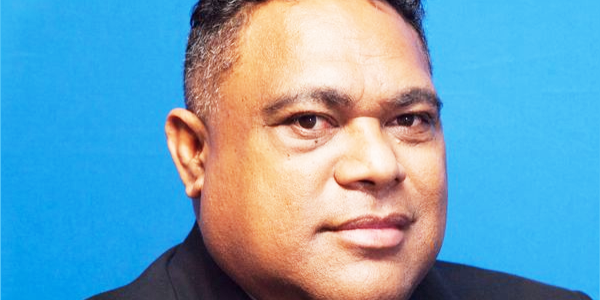CBSI Governor Forau urges urgent action to save ailing economy from a further plunge
IN light of the current fragile economic landscape and the considerable risks and uncertainties the situation poses, it is critical that action be immediately taken to avoid the economy from further plunging.
This was echoed by Governor of Central Bank, Dr Luke Forau, at the launch of the 2022 CBSI Annual report at Honiara Hotel last Thursday.
He said the current estimated average growth rate of 2.1 percent is not enough to support the country’s growing population, which is estimated to grow at the rate of at 2.4 percent.
Dr Forau said the economy needs to grow at least at a minimum average rate of 5 percent in order to support the country’s growing population.
He said to address this, there are three key areas for immediate actions.
“First, we need to respond to the near-term challenges of securing economic recovery.
“We also need to reprioritise our policies and focus on promoting sectors that will not only recover the economy but improve and sustain conditions for economic growth.”
The CBSI Governor said a key aspect in this regard is agriculture.
He said agriculture is seen as the sustenance of this economy and will remain so as 85 percent of the country’s population are dependent on it for their daily livelihood.
“More broadly, it represents 18 percent of GDP and 18 percent of exports in 2022. It is therefore not unreasonable to consider redoubling our efforts to expand support in this sector.
“To this end, implementing a more explicit and meaningful recovery package that finances volume production for example is the right direction forward.
“In this way, we [will] ensure we have a resilient population that can cope with current and future economic shocks through increased economic productivity whilst at the macroeconomic level, strong export receipts that contribute towards our foreign reserves, which at the moment are mostly donor driven and is highly susceptible to risk,” Dr Forau emphasised.
Dr Forau said the country needs to work on the supply side of the economy, which is currently weak and needs to be strengthened.
“There are other key sectors such as mining, fisheries and others that also contribute to growth.
“Secondly, given the significant impacts of the shocks and its persistent challenges on our people and businesses, it is critical we accelerate reforms and policies that would support the private sector and new investors to invest and do business in the country.”
Dr Forau said improving the efficiency of the government’s administration system and procurement practices through automation will not only increase investment, but also advance innovation and increase job creation in the economy.
As a simple example, he said promoting policies that facilitate ease of access to land registration for businesses, can increase investment, increase revenue and promote higher growth rates in the long run.
“Thirdly, recognising the opportunities available to address the many challenges that the country face. Here, I am looking at the opportunities that are provided by the digital platforms.
“With technology now at the tip of our finger, we need to take advantage and digitalise our economy.”
Within the context of the foregoing, the CBSI Governor said he encourages the fast-tracking of the implementation of the digital economy strategy, which the government is currently working on.
“I am sure once this is implemented, it would improve a lot of efficiencies, and we should be able to provide things like e-commerce, e-education, e-health, e-money, etc.
Additionally, he said an aspect that has taken on greater relevance and that showed signs of resilience in the recent times of our economy’s downturn are the country’s citizens.
“I would like to draw on the voluntary collective actions of our people. For example, filling of potholes by some group of young men or keeping the city clean by others are rational choices that get work done through collective voluntary actions.
“Addressing some of the societal problems we are faced with today will not always work through city or government authorities because of our young and growing population.
“It’s time to re-think the approach that all things have to be done by the government.
“It’s time we recognise and get the buy-ins of our citizens and civil society to collectively address our societal problems.
“Besides, history has it that a lot of problems are solved through voluntary actions. This is a great opportunity we should tap.”
BY CHARLES KADAMANA









